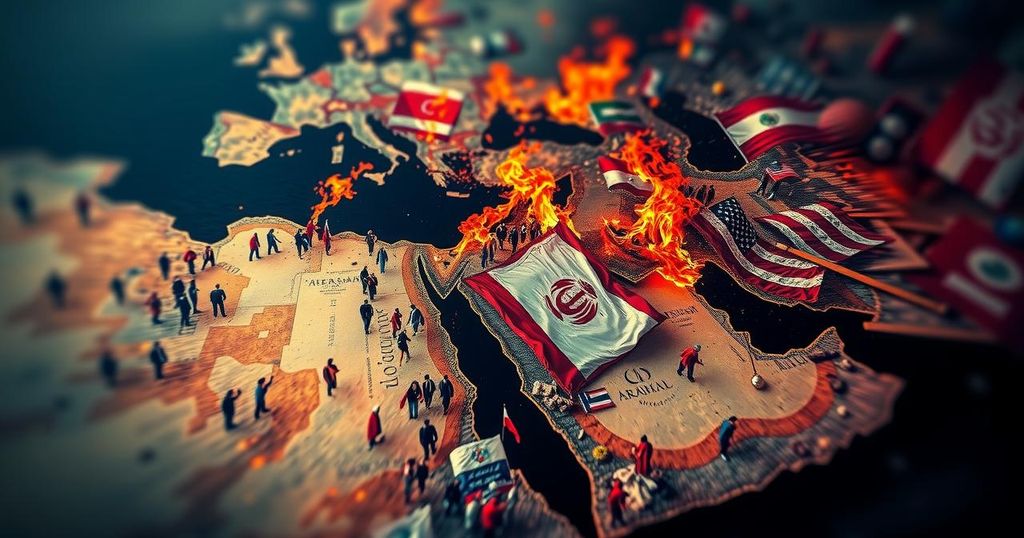Israel launched airstrikes on Iranian military sites on October 26, 2024, not targeting critical oil and nuclear facilities. In the aftermath, various Arab nations condemned the attacks and called for restraint from both sides, with concerns over escalating regional tensions amid ongoing conflicts in Gaza and Lebanon.
On the morning of October 26, 2024, Israel carried out airstrikes targeting military installations in Iran, sparking significant concern among nations in the Middle East. The strikes reportedly did not include key oil and nuclear infrastructure. In light of this aggression, several Arab nations expressed their apprehensions and called for restraint from both Israel and Iran to prevent further escalation of conflicts that have already destabilized the region due to ongoing issues in Gaza and Lebanon. Israel’s military has acknowledged responsibility for these attacks, which involved multiple waves of airstrikes aimed at missile facilities. Following these events, Israel issued a warning to Iran against any retaliatory action. Responses from Arab states have varied: – Saudi Arabia voiced strong condemnation of the attacks, labeling them a breach of Iran’s sovereignty. The Saudi Press Agency released a statement asserting, “The Kingdom reaffirms its firm stance against the ongoing escalation in the region and the expansion of conflicts that threaten security and stability.” – The United Arab Emirates similarly condemned the military action, with the Foreign Ministry expressing deep concerns regarding the escalating situation and urging restraint from both parties involved. – Iraq criticized Israel’s actions and called for a ceasefire in the ongoing Gaza conflict, emphasizing the aggressive nature of Israel’s policy in the region. – Qatar, which has played a mediator role in previous conflicts, expressed its worries regarding the fallout from Israel’s actions on Iran, – Oman condemned the strikes as a trigger for a cycle of violence, advocating for intervention by the international community to stop such violations. – Syria declared its solidarity with Iran, affirming its right to defend its territory against aggression. – Jordan denounced the attacks as violations of international law and called for urgent international action to curb Israeli aggression across the region. This array of responses reflects the heightened tensions in the area as nations grapple with the implications of Israeli military operations within Iran. The ongoing strife in places like Gaza and Lebanon complicates the situation further, potentially setting the stage for a larger conflict between these powers.
The article discusses the recent escalation in hostilities following Israeli airstrikes on military sites in Iran, reflecting the fragile geopolitical landscape of the Middle East. This incident occurs against a backdrop of ongoing conflicts in neighboring regions, particularly in Gaza and Lebanon, and raises concerns about an escalating cycle of violence. Many Arab nations have responded with a blend of condemnation and calls for restraint, illustrating the delicate balance of power and diplomatic relations existing in this turbulent area.
In summary, the Israeli attacks on military sites in Iran have provoked significant reactions from Arab nations, many of which have condemned the actions and called for de-escalation of tensions. The incident not only underscores the volatility of the current geopolitical climate in the Middle East but also highlights the intricate relationships and responses of neighboring states amidst ongoing regional conflicts. Continued dialogue and restraint are essential to prevent further deterioration of security and stability in this region.
Original Source: en.tempo.co






